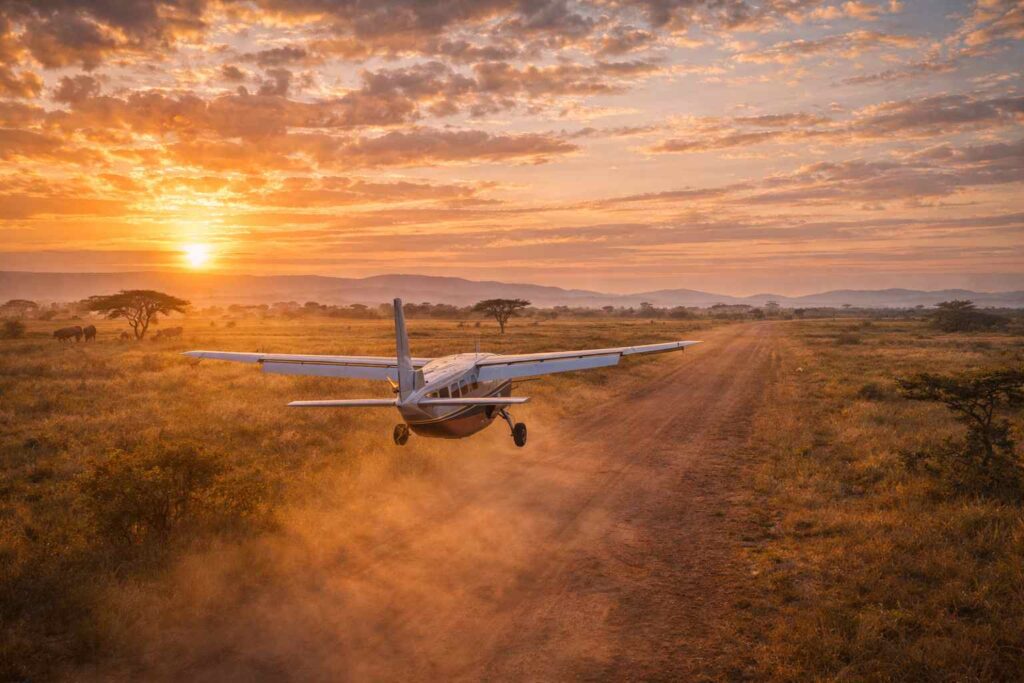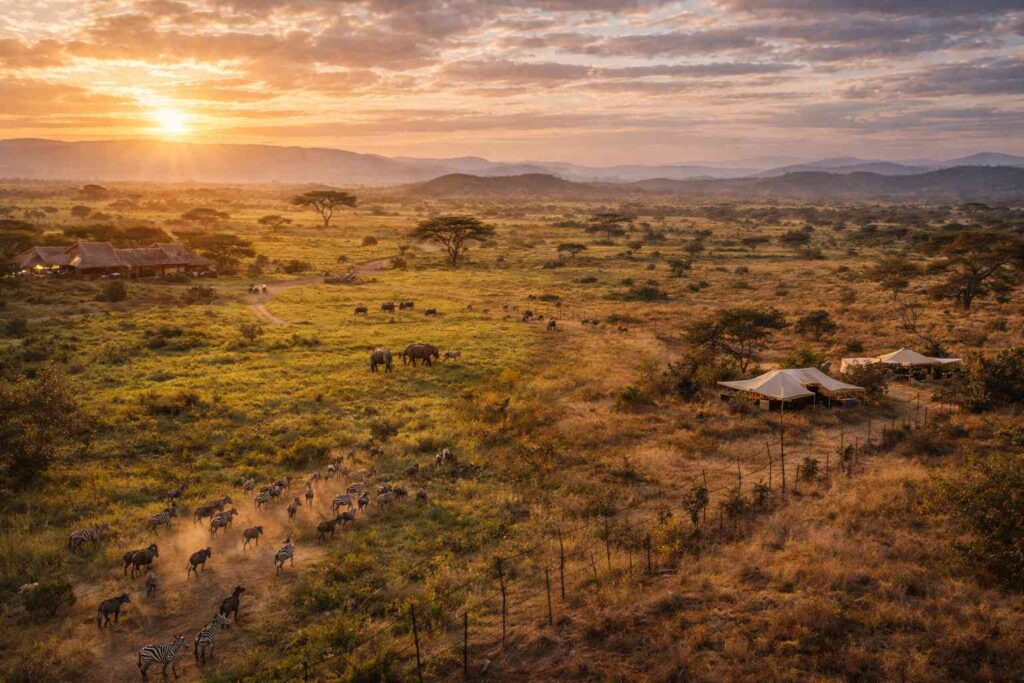Imagine watching elephants cross the savannah at dawn, or lions lazing in the golden grass, without worrying about mosquito nets or antimalarial pills. For families, expecting mothers, or anyone cautious about medication, a “pill-free” safari is an enticing option. Fortunately, several African destinations make this dream a reality, offering world-class wildlife experiences without the health risks of malaria-prone regions.
This guide explores what “malaria-free” really means, where to find these safe zones, and how to plan a seamless safari without sacrificing safety.
What “malaria-free” really means
When travel operators refer to a destination as “malaria-free,” they typically mean that malaria transmission is so rare that antimalarial medications are not recommended. These areas are often at higher altitudes or in dry climates where mosquitoes are scarce. Still, “malaria-free” doesn’t mean “mosquito-free”—using repellent and protective clothing remains good practice.
Why it matters: travel without medical stress
For certain travelers, avoiding malaria zones is more than a preference—it’s a health necessity. Pregnant women are at higher risk of severe malaria. Children under five may have limited medication options. And some travelers simply react poorly to antimalarial drugs. Malaria-free safaris allow these groups to experience the magic of Africa with greater peace of mind.
The best malaria-free safari destinations
South Africa: a safari without compromise
South Africa leads the way in malaria-free safaris. It offers Big 5 game viewing, excellent infrastructure, and a wide range of family-friendly lodges—all in areas where no prophylaxis is needed.
Eastern Cape
- Addo Elephant National Park: Known for its large elephant herds, easily accessible from Port Elizabeth.
- Shamwari, Kwandwe, Amakhala: Private reserves offering luxury stays and conservation-led experiences.
Madikwe Game Reserve
- Located near the Botswana border, Madikwe is a premium malaria-free Big 5 destination, excellent for first-time safari-goers.
Pilanesberg National Park
- Close to Johannesburg and Sun City, Pilanesberg combines easy access with rewarding wildlife sightings.
Waterberg and Welgevonden
- Scenic, mountainous regions offering peaceful, less crowded safaris.
Namibia: desert safaris with minimal mosquito presence
Much of Namibia is naturally malaria-free due to its arid climate. Etosha National Park has very low risk, especially in the dry season. The iconic dunes of Sossusvlei and the Skeleton Coast are virtually mosquito-free year-round.
Botswana (partial)
While much of Botswana is high-risk, the Kgalagadi Transfrontier Park in the far south is considered malaria-free. It offers stark desert beauty and unique wildlife in a tranquil setting.
Choosing the right lodge and season
Even in malaria-free areas, lodge infrastructure matters. Look for properties that:
- Have screened windows and doors
- Provide repellent and nets as standard
- Are located well within malaria-free zones, not bordering high-risk regions
Also consider the season: dry months (typically May to October in Southern Africa) mean fewer insects overall.
Still take precautions
Even without malaria risk, mosquitos can carry other diseases, and bites can be uncomfortable. Wear long sleeves in the evening, apply insect repellent, and sleep with a fan or net when possible. Travel insurance that includes emergency medical evacuation is still a wise investment.
A great option for cautious travelers
For families with toddlers, pregnant guests, or travelers with complex medical histories, a malaria-free safari removes a significant barrier. You won’t miss out on wildlife—in fact, many of these regions rival the most famous parks in biodiversity and scenery. What you gain is comfort, ease, and freedom from the anxiety of tropical illness.
FAQs
No destination is completely risk-free, but these areas are considered safe enough that antimalarial drugs aren’t recommended.
Yes. Use repellent and cover up, even in dry or highland areas.
Most of East Africa carries some malaria risk. For truly malaria-free options, stick to Southern Africa.
It depends on what you’re seeking. Namibia offers dramatic landscapes and rare species, though it may have fewer predators than Serengeti.
Most lodges will provide it if needed, but lightweight travel nets can offer extra peace of mind.






